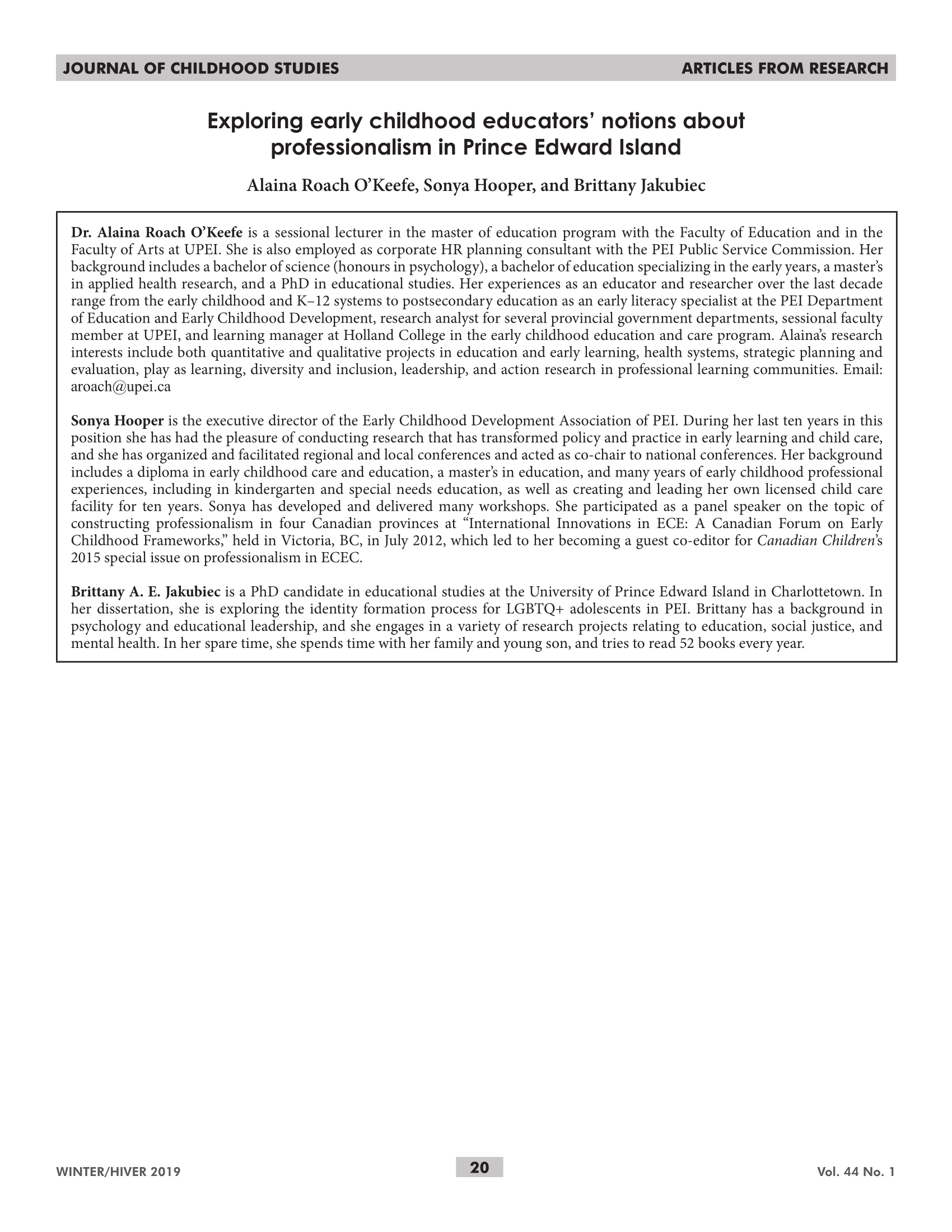
There is broad consensus that high-quality environments for young children depend on teachers who are skilled at nurturing their development and learning, yet low pay and inadequate working conditions routinely hamper teachers in their efforts to apply their skills and knowledge. Yet, the voices of early educators — those working with children from infancy through preschool — are rarely heard, and public awareness of the challenges facing this workforce remains low. Compared to their K-12 peers, early educators are less organized and vocal about their situation, but a persistent state of teacher crisis casts a pall over efforts to ensure high-quality early care and education for all children prior to kindergarten. This study captures the perspectives of early educators about their working environments in one state, New York, and how these environments impact teaching staff practice and wellbeing. In order to teach to the best of their ability, educators require work environments that support their ongoing learning, emphasize time without child responsibilities for professional activities, and offer dependable benefits that ensure their well-being. With prioritization of workforce supports, quality improvement initiatives can make substantive progress towards a system that is equitable, efficient, and effective for children, their families, and educators alike. Capturing the experiences and perspectives of early educators working directly with children as a component of evaluating QUALITYstarsNY presents an opportunity to further refine and strengthen the policies, practices, and resources necessary to facilitate a high-quality system that supports children and their teachers alike.
Authors: Publication:Journal of Early Childhood Studies
Year of Publication:2019
journals.uvic.ca

